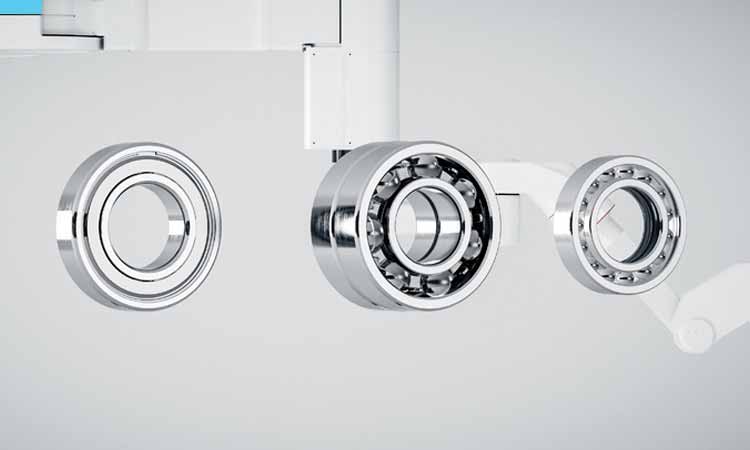Medical devices play a crucial role in healthcare, assisting in diagnostics, treatment, and patient care. The performance and reliability of these devices are paramount to ensure accurate results and patient safety. One often overlooked yet critical component contributing to the functionality of medical devices is precision bearings. This article explores the significance of precision bearings in medical devices, highlighting their role in enhancing performance, reliability, and overall patient care.
The Importance of Precision Bearings in Medical Devices
Accuracy and Precision: Precision bearings are engineered to provide high levels of accuracy and precision in rotational movements. In medical devices such as diagnostic imaging equipment, surgical robots, and prosthetics, precise motion control is essential for achieving accurate results and optimal performance.
Reduced Friction: Medical devices often require smooth and controlled movements. Precision bearings, designed with low friction materials and advanced lubrication, contribute to reduced friction and wear. This not only extends the lifespan of the devices but also ensures consistent and reliable operation.
Applications of Precision Bearings in Medical Devices
Diagnostic Imaging Equipment: In devices like MRI machines and CT scanners, precision bearings play a vital role in the smooth rotation of components, such as gantries and imaging modules. This ensures that medical professionals receive clear and accurate images for diagnostic purposes.
Surgical Robotics: The field of robotic-assisted surgery relies heavily on precision bearings. These bearings enable robotic arms and surgical instruments to move with precision and stability, allowing surgeons to perform minimally invasive procedures with enhanced accuracy.
Prosthetics and Orthopedic Devices: Precision bearings are integral to the design of prosthetics and orthopedic devices, providing smooth joint movements. This enhances the comfort and mobility of patients, contributing to the overall success of rehabilitation and patient outcomes.
Challenges and Innovations in Precision Bearings
Sterilization and Cleanliness: Medical devices must adhere to strict hygiene standards. Precision bearings used in medical devices need to withstand frequent sterilization processes without compromising their performance. Ongoing research focuses on developing bearings with materials and coatings that are resistant to harsh sterilization methods.
Miniaturization and Integration: As medical devices become more compact and integrated, there is a growing demand for smaller and lighter precision bearings. Manufacturers are innovating to create miniature bearings that maintain high performance in confined spaces, meeting the evolving needs of medical device design.
Capabilities of Indian bearing industry
The Indian bearing industry has witnessed significant growth and development in recent years, and it possesses certain capabilities that make it well-suited for the manufacture of miniature bearings, including those used in medical devices. Here are some key capabilities of the Indian bearing industry in this context:
Technical Expertise
Indian bearing manufacturers have developed considerable technical expertise in producing a wide range of bearings, including miniature bearings. This expertise is crucial for meeting the stringent requirements of the medical device industry, where precision and reliability are paramount.
Research and Development
Many Indian bearing companies are investing in research and development to enhance their product offerings. This includes the development of specialized materials, coatings, and manufacturing processes that are essential for producing miniature bearings suitable for medical applications.
Quality Standards
The Indian bearing industry adheres to international quality standards. Many manufacturers have implemented robust quality control measures to ensure the reliability and performance of their bearings. This is particularly important in the medical field, where consistency and precision are critical.
Cost-Competitiveness
India is known for its cost-competitive manufacturing environment. This advantage can be leveraged to provide high-quality miniature bearings at competitive prices, making Indian manufacturers attractive to both domestic and international medical device companies.
Flexible Production
Indian bearing manufacturers often have the flexibility to adapt their production processes to different requirements. This agility is crucial for responding to the dynamic and evolving demands of the medical device industry.
Global Partnerships
Some Indian bearing manufacturers have established partnerships and collaborations with global companies, facilitating the exchange of technology and expertise. This enables them to stay updated with the latest advancements in bearing technology for medical applications.
While the Indian bearing industry possesses these capabilities, it is important for manufacturers to continue investing in research, development, and quality assurance to stay competitive in the global market, especially in sectors like medical devices where precision and reliability are non-negotiable. Additionally, building strong collaborations with medical device manufacturers and staying abreast of industry trends will further enhance the industry’s capabilities in manufacturing miniature bearings for medical applications.
Conclusion
Precision bearings play a crucial role in the performance and reliability of medical devices, contributing to accurate diagnostics, successful surgeries, and improved patient outcomes. As technology advances, the development of specialized bearings tailored to the unique requirements of medical applications continues to be a focal point, ensuring that medical professionals can rely on precise and efficient equipment in their critical work.



